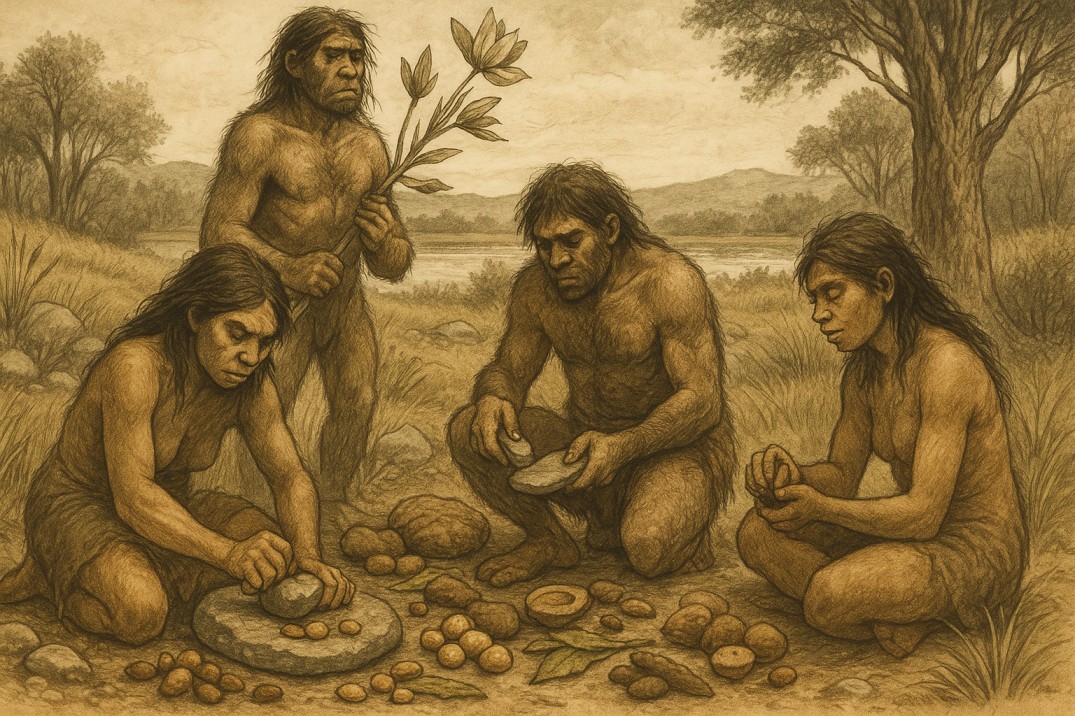EARLY HUMANS THRIVED ON A PLANT-BASED DIET (780,000 YEARS AGO)
(Hadar Ahituv et al., PNAS, Jan 6, 2025)
• Discovery of starch grains on ancient tools reveals the central role of plants—starchy tubers, nuts, and roots rich in carbohydrates—essential for fueling the human brain.
• These tools represent the earliest evidence of plant food processing, used for preparing acorns, cereals, legumes, and aquatic plants like yellow water lily and the now-extinct water chestnut.
• Researchers also identified microscopic remains (pollen grains, rodent hair, feathers), supporting the credibility of these findings.
• The study highlights social & cognitive behaviors of early humans:
– Tool use for food processing suggests cooperation and structured social groups.
– Ability to exploit both aquatic and terrestrial resources reflects deep ecological knowledge.
• This discovery is a major milestone in prehistoric studies, offering insights into dietary habits, human evolution, and the development of complex societies.
Anthropological Relevance:
This finding reshapes our understanding of early hominin subsistence strategies, cognitive evolution, and social cooperation. Plant-based diets were not just survival mechanisms but a driver of brain development and cultural evolution.






